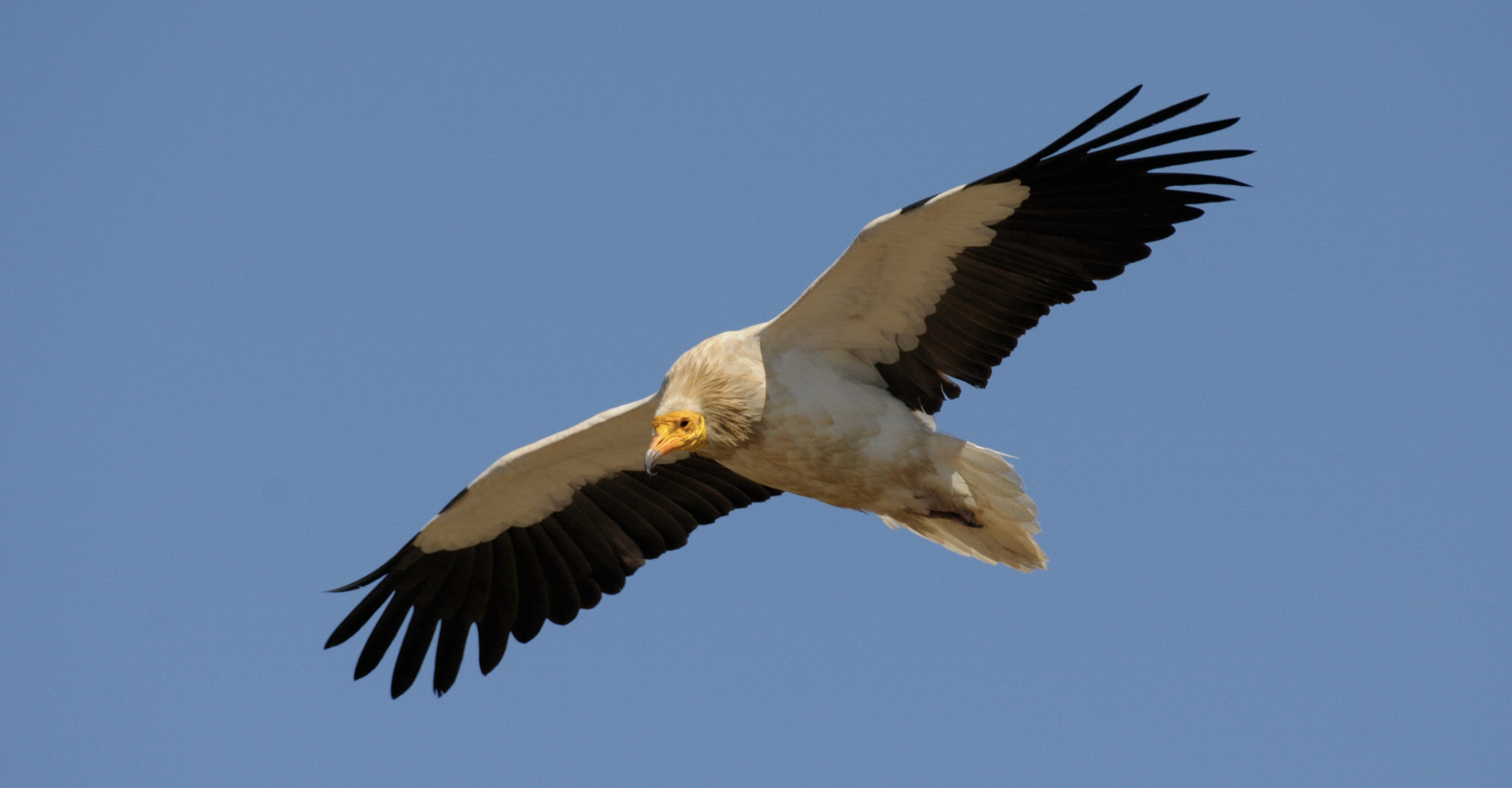
Exciting news for the Egyptian Vulture in the Balkans as four new territories of the species were discovered in the region — three in Bulgaria and one in Greece!
Egyptian Vulture territories in Bulgaria
The Bulgarian Society for the Protection of Birds (BSPB) has recently confirmed a newly formed pair of Egyptian Vultures in Northern Bulgaria for the first time since 2007, which is even raising a generation! There is more optimistic news coming from the north of the country as a single Egyptian Vulture has also occupied territory in an old breeding area of the species according to Fund for Wild Flora and Fauna (FWFF). An Egyptian Vulture New LIFE team also found a new pair in an old breeding territory of the speciesin the Eastern Rhodopes.
Thus, 2020 marks three more occupied territories of the globally endangered species in Bulgaria compared to 2019. Their total number is 27 and the number of hatchlings is 30, with 85% of all pairs having offsprings. The two new pairs are in the two cores of the population of the species in the country – in Northern Bulgaria and in the Eastern Rhodopes. The pair in the Eastern Rhodopes occupied a territory in the periphery of the core, which in the past was also inhabited by a family of Egyptian Vultures. The male bird from the newly formed pair in Northern Bulgaria has a colored ring with a number – B14, which allowed the BSPB team to track its history. The bird was ringed on July 24, 2008, by a BSPB team in a neighbouring breeding territory.

The so-called Philopatrism characterizes the Egyptian Vulture and other species of birds of prey – which means that when the birds reach maturity, they return to the breeding territories where they hatched to reproduce. In this case, the nest in which B14 hatched is still occupied, possibly even by its own parents. Therefore, B14 occupies the nearest neighboring nesting territory of its father, demonstrating the mechanism by which in nature the species occupy their territories and restore the size of their population. BSPB staff guards the pair every day so that it can raise its first generation. The Egyptian Vulture family gives a glimmer of hope for the restoration of the species in Northern Bulgaria.
Egyptian Vulture territories in Greece
There is good news coming from Greece as well as a new pair that occupies an old breeding territory has been confirmed in Dadia-Lefkimi-Soufli Forest National Park. The total number of pairs increased to four, after a dramatic drop when only three pairs remained in the whole country in 2019. All four pairs are settled in Thrace and successfully nested and reared six fledglings that will very soon start to fly and discover the area before leaving for Africa in autumn. In Western Greece, despite the fact that only one territory with a single male was confirmed, there is new hope following an observation of an immature bird in the area of Meteora, which has not happened for many years.
The monitoring of the nesting territories of the globally endangered Egyptian Vulture is carried out within the Egyptian Vulture New LIFE project.
Egyptian Vulture New LIFE

Working collaboratively projects like the Egyptian Vulture New LIFE aims to reinforce the Egyptian vulture population in their Europe’s easternmost range across the Balkans. By actively managing and restocking the population by releasing captive-bred birds the project will support the small Balkan population which number between 60 and 80 pairs across the whole region. The project is working to deliver conservation measures that eliminate major known threats such as illegal poisoning and electrocution in their summer breeding grounds. Monitoring the population closely using GPS transmitters will also help the project tackle the major threats Egyptian vultures face. The Egyptian Vulture New LIFE is a partnership of organisations, led by the Bulgarian Society for the Protection of Birds from 14 countries spanning Europe, the Middle East and Africa, to protect Egyptian vultures not only in Europe but all along their migratory flyway.

Source: Egyptian Vulture New LIFE


